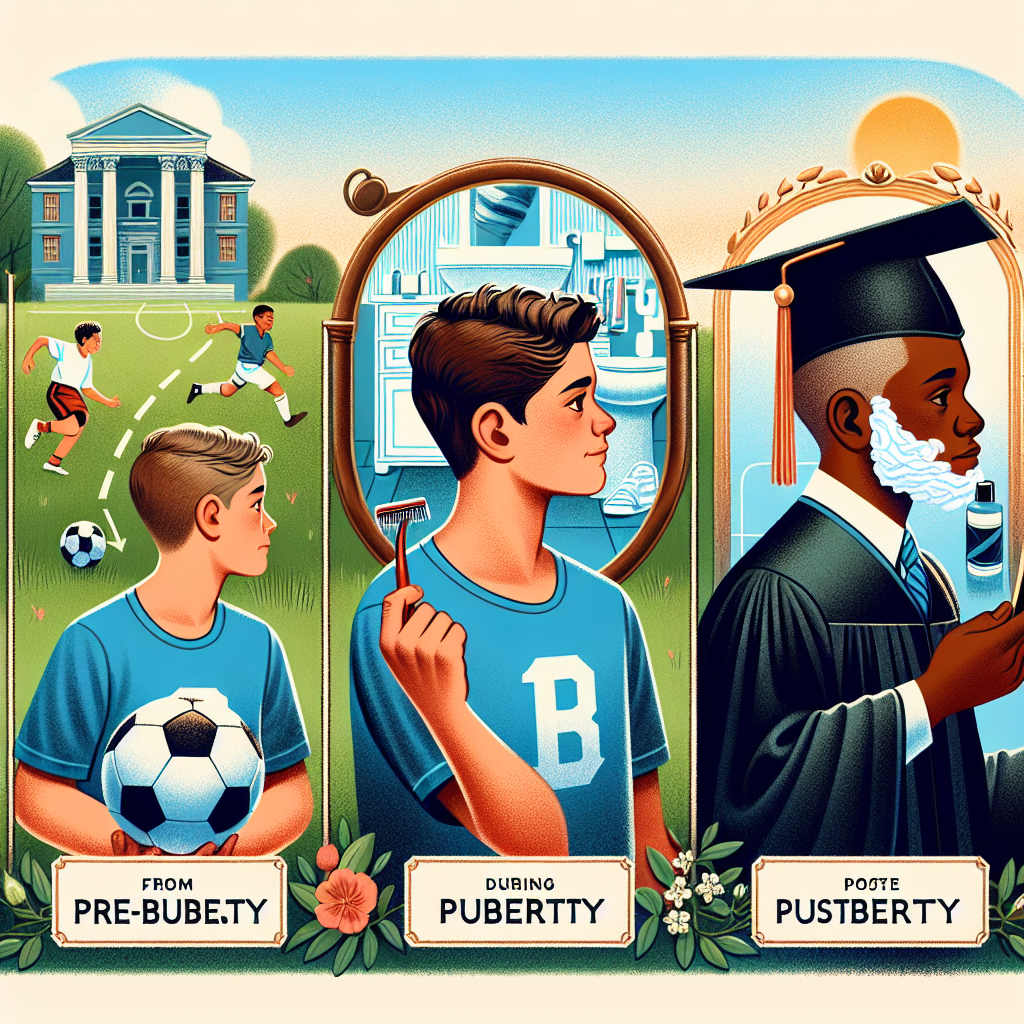Introduction
Puberty is a profound transformation that signifies the leap from childhood to adulthood. The journey from boys to men is not merely biological; it encompasses emotional, psychological, and social dimensions. As boys experience these changes, they face challenges and opportunities that shape their identities and futures. Understanding the male experience of puberty is essential, both for the boys undergoing it and for those around them—be it parents, educators, or peers. This article delves into the intricate layers of puberty, providing unique insights and guidance.
The Journey Begins: Understanding Puberty
What is Puberty?
Puberty is the stage of human development marked by significant physical growth and sexual maturation. For boys, this process typically begins between ages 9 and 14 and lasts several years. It includes hormonal changes that lead to physical transformations, psychological shifts, and social challenges.
Key Hormones Involved in Puberty:
| Hormone | Function |
|---|---|
| Testosterone | Drives muscle growth, voice changes, and the development of secondary sexual characteristics. |
| Luteinizing Hormone (LH) | Stimulates testosterone production in the testes. |
| Follicle-stimulating Hormone (FSH) | Aids in the production of sperm and regulates the development of the reproductive system. |
The Phases of Puberty
Puberty can be broken down into distinct phases, each with unique characteristics:
- Early Puberty (Ages 9-11): Initiation of physical changes, including testicular enlargement and pubic hair growth.
- Mid-Puberty (Ages 12-14): Increased growth rate, voice deepening, and the onset of acne.
- Late Puberty (Ages 15-17): Completion of physical changes, emotional maturation, and the development of adult sexual characteristics.
The Physical Changes: What to Expect
Growth Spurts and Body Changes
Boys often experience rapid growth. The average growth spurt occurs between ages 11 and 13, where boys can gain 3 to 6 inches per year. Understanding these changes helps boys normalize their experiences.
Voice Changes
The voice deepens due to the enlargement of the larynx and the development of vocal cords. This can lead to a period of voice "cracking," which is perfectly normal.
Skin and Hair
The onset of acne and body hair growth may lead to self-consciousness. Understanding that these changes are universal can be comforting for young boys.
Emotional and Psychological Impacts
Mood Swings and Emotional Turmoil
Hormonal changes can result in mood swings and heightened emotions. It’s crucial for boys to understand that these feelings are a natural part of growing up.
Identity Formation
Puberty is a time for self-discovery. Boys begin to explore their identities, including their interests, relationships, and sexuality. Supportive environments that encourage exploration can bolster confidence.
Case Study: The Impact of Positive Role Models
A study focusing on boys aged 12-15 showed that those with positive male role models were more confident in navigating puberty. The presence of supportive figures—like fathers, coaches, or mentors—can substantially ease this transition.
Social Relationships
Friendships can deepen or become strained during puberty. It’s essential for boys to communicate openly with peers and understand the dynamics of evolving friendships.
Building Resilience: Navigating Challenges
Coping with Peer Pressure
Peer pressure can significantly influence decision-making during puberty. Boys must learn to stand firm and make choices that align with their values.
Table: Strategies for Coping with Peer Pressure
| Strategy | Description |
|---|---|
| Assertiveness Training | Teach boys to communicate their boundaries clearly. |
| Building Positive Friendships | Encourage friendships that support healthy choices. |
| Role-Playing Scenarios | Practice responses to peer pressure in a safe setting. |
Overcoming Self-Esteem Issues
As boys confront physical and emotional changes, self-esteem can fluctuate. Encouraging open dialogues about self-worth and body image is essential.
Family Dynamics: Supporting Boys Through Puberty
Open Communication
Maintaining open lines of communication encourages boys to discuss feelings and experiences. Parents can play a crucial role by initiating conversations about puberty.
Educational Resources
Providing books or resources tailored to boys can help demystify puberty. Schools and parents can collaborate to include puberty education in curricula.
Conclusion: From Boys to Men—Embracing the Transition
The male experience of puberty is a significant journey filled with challenges and triumphs. Understanding this process equips boys with the knowledge and confidence to embrace their transformation. Whether through educational resources, open conversations, or supportive relationships, the transition can be navigated healthily.
The journey from boys to men is not just about physical changes; it’s about building resilience, understanding emotions, and fostering healthy relationships. Encouraging self-acceptance and openness can inspire boys to step into their future with confidence.
FAQs
1. What age does puberty typically begin for boys?
Puberty for boys typically begins between ages 9 and 14.
2. How can parents support their sons during puberty?
Open communication, educational resources, and positive role modeling can significantly support boys during this transition.
3. Are mood swings normal during puberty?
Yes, hormonal changes can result in mood swings, which are a common experience during puberty.
4. What should I do if my son is struggling with self-esteem during puberty?
Encourage open dialogue about feelings, and consider seeking counseling or support groups to help boost self-esteem.
5. How can boys deal with peer pressure effectively?
Practicing assertiveness, building positive friendships, and role-playing scenarios can help boys navigate peer pressure successfully.
Embracing the transition from boys to men is a journey that requires understanding, patience, and guidance. By fostering an environment of support and open communication, we can ensure that this phase of life is not just endured but celebrated.

